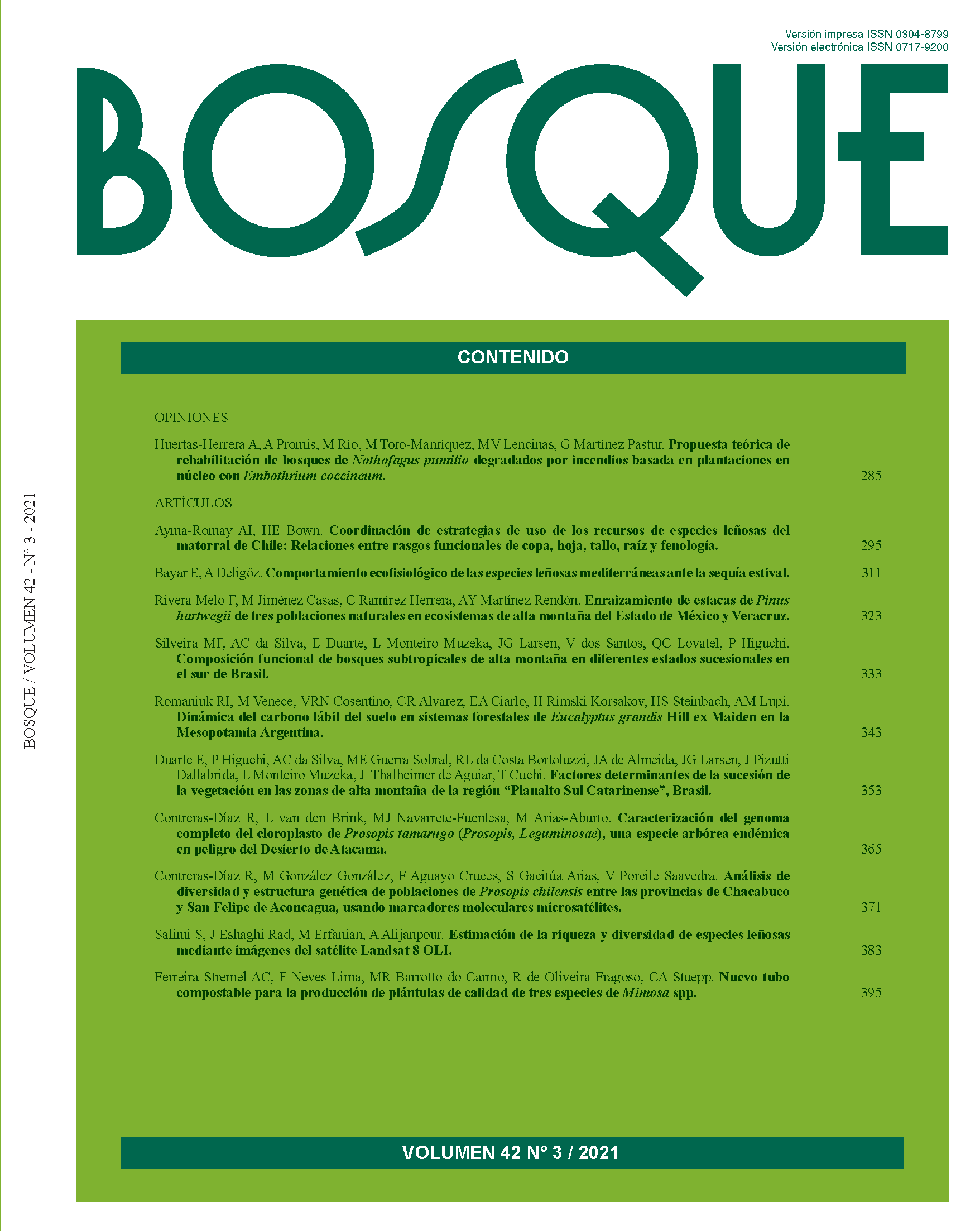Theoretical proposal for the rehabilitation of Nothofagus pumilio forests degraded by fires based on cluster plantings with Embothrium coccineum
Main Article Content
Abstract
The rehabilitation of temperate forests with native species requires trial and guidelines to achieve recovery of degraded areas of southern Chile and counteract the environmental imbalance caused by the impacts received. This study aims at presenting a theoretical proposal of rehabilitation based on cluster plantings to improve the recovery of lenga (Nothofagus pumilio) forests degraded by historical fires in Aysén Region. A rehabilitation strategy based on cluster plantings is proposed, in which individuals of lenga are established together with notro (Embothrium coccineum), the latter as a nurse plant, to accelerate the development of lenga seedlings through facilitation mechanisms, such as the improvement of microclimatic conditions, and protection from possible damage by seedling herbivores within each cluster. This proposal could be used in degraded lenga forests, both in Protected Wild Areas and in productive forests, as well as in landscapes fragmented by historical fires.

